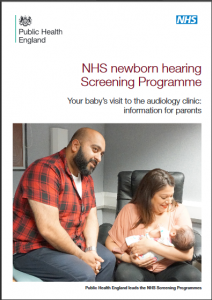The NHS Newborn and Infant Physical Examination (NIPE) programme screens newborn babies within 72 hours of birth, and then once again between 6 and 8 weeks of age, for conditions relating to their eyes, heart, hips and testes.
An expert hip screening working group has proposed changes to the NIPE hip screening pathway and stakeholders are asked to comment on these changes.
We are submitting a response from the iHV and would like to include the voices of health visitors, including our members, Champions and Fellows.
Collective professional response: We are pulling together a collective professional response via the iHV. Please email your comments for the collective professional response to [email protected] by 13 June 2018 so that we can collate all comments, as the consultation closes at 12pm on Wednesday 27 June 2018.
For Individual/organisational responses: If you would like to respond individually or as an organisation, please go to the Open Consultation that can be found here – https://www.gov.uk/government/consultations/proposed-changes-to-nipe-hip-screening-pathway. Comments for the consultation to be received no later than 12pm on Wednesday 27 June 2018.
We look forward to receiving your responses – and, hopefully, together we can make the HV voice be heard.



